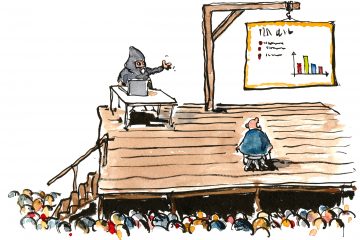October Surprise: How Foreign Policy Can Shape US Presidential Elections
The president’s recent diagnosis with Covid-19 sent the US presidential election race into a tailspin. As Donald Trump and Joe Biden jockey to regain control of the media narrative at a crucial phase of the campaign, speculation about a possible “October surprise” is widespread. Today, the term refers to any news story that breaks late in an election cycle and has the potential to affect the outcome of the election. Yet its origins are firmly rooted in foreign policy. In particular, the phrase describes a sitting president’s alleged propensity to manipulate events to boost their electoral prospects. The president’s recent tweet calling for all remaining US forces in Afghanistan to return home by Christmas has fueled suspicions that Trump is playing politics …

Bizarre, strange or last straw? Slideshows in International Relations
Last week, Israeli Prime Minister Benjamin Netanyahu made headlines with his PowerPoint presentation on Iran’s nuclear program. Media outlets talked of a ‘bizarre PowerPoint’, a ‘strange slideshow’ and deemed it unnecessary for Netanyahu ‘to convince us that you don’t support the Iran nuclear deal’. The slideshow quickly became a twitter meme. What these reactions made me recall is how rare it is for heads of state or government officials to use PowerPoint slides, or any type of visualizations, to convey and illustrate information of international concern to the public. While PowerPoint is a medium of debatable value, nonetheless, we all use it frequently to present complex information. It is the default medium in business and academia, but it is not …









